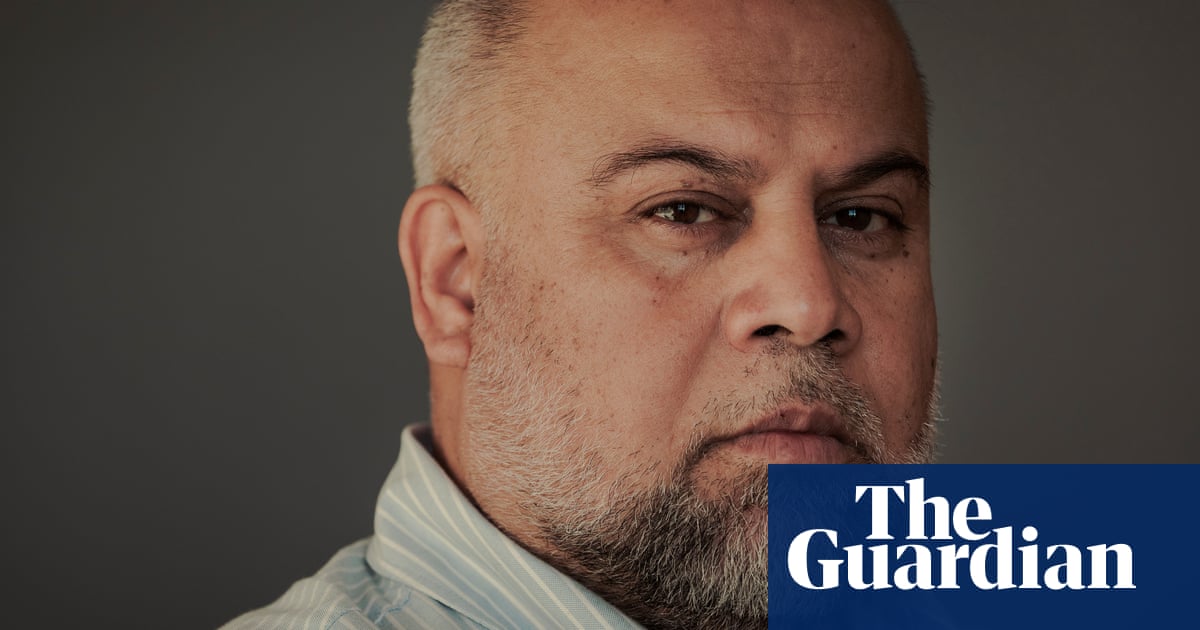Purpose was never something Wael al-Dahdouh struggled with. Even when struck by personal tragedies, the Palestinian journalist would take his place in front of Al Jazeera’s cameras to report the news from Gaza.
Hereturned to workalmost immediately after his wife, two of his children and his toddler grandson were killed by an Israeli airstrike in October 2023. He showed the same determination seven weeks later whenhe was himself injured, and his friend and colleague Samer Abu Daqqa killed, as they reported on the aftermath of an Israeli airstrike on a school.
He again was back at work immediately after the funeral of his eldest son,Hamza, a cameraman killed in a targeted Israeli strikeon a car carrying a group of reporters in January 2024.
But his family persuaded him to leaveGazathat same month, and though Dahdouh gives interviews and travels the world to speak about the war there, he still struggles with the fact that he is no longer reporting alongside colleagues who have persisted through danger and hunger.
“It was as if I had been poisoned when I left the Gaza Strip,” he says. “I can’t exaggerate to say often it is more difficult than when I was inside, and this deepens every time I see a disaster in Gaza that affects the journalists, the people, my relatives.”
Dahdouh adds: “At least when I was in Gaza I felt like I could do something valuable, to report on the people’s suffering, about the massacres they faced, about their stresses, their problems.”
Now separated from his microphone and camera, Dahdouh – who still wears a brace on his injured arm – focuses on his own recovery and that of his surviving family who were able to get out of Gaza.
He says he finds the only limited way he can reprise some of the purpose he felt as a journalist is to speak to international audiences,as he did last week at the Amnesty Media Awards,calling for solidarity with Gaza’s journalists as he picked up the prize for outstanding contribution to human rights journalism.
At least 225 Palestinian journalists and media workers are known to have been killed in Gaza since the start of the Israeli onslaught,according to the Palestinian Journalists’ Syndicate, and many of the most experienced have had to leave because of the danger they faced.
This has meant respected and well-known faces such as Dahdouh, who covered every war in Gaza since 2005, have been replaced by younger, less experienced journalists who are having to learn their craft while living in tents, under the threat of death and often while hungry.
He says the new generation of media reports in Gaza combine traditional skills with citizen journalism, with social media accounts often posting information from areas reporters cannot reach because of the danger they face.
Dahdouh has no doubt that the Israeli military has journalists in its sights and that his own family were targeted because of his work, but he believes those reporting from Gaza will continue working because the circumstances force them to continue.
Sign up toGlobal Dispatch
Get a different world view with a roundup of the best news, features and pictures, curated by our global development team
after newsletter promotion
“Honestly, I took my strength from God. That’s how I was able to bear the pain of what I saw with my eyes and what I experienced in my heart, to overcome it, to hide the pain to return to work as if nothing had happened,” says Dahdouh.
“People do not have options. Even when you want to get rid of these people, where do you go? To a hospital, to a camp, to a street, to a house, or whatever is left of houses?
“There is no safe place. Your back is against the wall so all you can do is continue. The cost [of being a journalist] is high and everyone pays the price, but you must continue.”
Last week, more than 140 media rights groups and news organisations joined the Committee to Protect Journalists and Reporters without Bordersdemanding of Israelthat it allow foreign journalists into Gaza and calling the killing, displacement and threats against Palestinian journalists “a direct attack on press freedom and the right to information”.
Dahdouh says journalist colleagues in safer regions have a duty to support those in Gaza by speaking out for them, raising awareness about the killing of journalists and putting pressure on Israel to protect members of the media.
“I used to wish that Hamza’s blood would be the last of the blood of journalists and civilians, but after these long months, there is a lot of blood flowing from the journalists and the civilians,” says Dahdouh.
“I want to see the journalists’ colleagues from all over the world using their conscience, morals and international law to do what they can for their colleagues and brothers in the Gaza Strip. At least then we can feel that we were not abandoned and the world did not silence our murder.”
